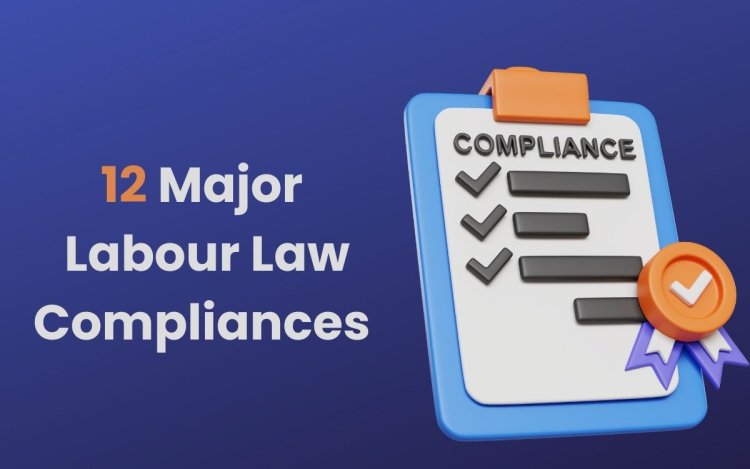Running a business in India comes with responsibilities. One of the most important is following labour laws that protect workers and make sure everything runs fairly. If these rules are ignored, businesses can face heavy fines, legal trouble, or even be shut down.
Here are 12 important labour law compliances that every employer in India should know:
1. Shops and Establishments Act
This rule applies to most shops, offices, and businesses. It covers:
-
Working hours and weekly holidays
-
Hiring rules for women and young workers
-
Keeping records of attendance, salaries, and holidays
2. Employees’ Provident Fund (EPF)
EPF helps employees save for the future. Employers must:
-
Register on the EPFO portal
-
Deposit their share and the employee’s share every month before the 15th
-
File reports and keep PF records properly
3. Employees’ State Insurance (ESI)
ESI gives medical help to employees. Employers need to:
-
Deduct ESI money from salaries and pay it on time
-
Register employees on the ESIC portal
-
Submit returns and keep records ready for checks
4. Professional Tax
Some states in India charge this tax. Employers should:
-
Get the required certificates for registration and enrollment
-
Deduct tax from salaries every month
-
Pay the tax and file returns as per state rules
5. Gratuity Payment
Gratuity is money given to employees who leave after working for 5 years or more. Employers must:
-
Calculate and pay it correctly
-
Submit Form F and keep all related documents
6. Bonus Payment
Employers must give a yearly bonus to eligible employees. They should:
-
Pay a bonus between 8.33% to 20% of annual salary
-
Fill out and submit Forms A to D
-
Pay the bonus within 8 months after the financial year ends
7. Minimum Wages
Every state has rules for the lowest salary a worker can be paid. Employers must:
-
Pay at least the minimum wage as per their state’s rule
-
Classify workers correctly (skilled, unskilled, etc.)
-
Keep wage slips and payment records
8. Maternity Benefit
This law protects the rights of women during pregnancy. Employers should:
-
Give 26 weeks of paid leave to eligible female employees
-
Not fire any woman during maternity leave
-
Fill Form A and keep related documents
9. POSH (Prevention of Sexual Harassment)
To keep the workplace safe for women, employers must:
-
Set up an Internal Complaints Committee (ICC)
-
Organize training and awareness sessions
-
Put up the POSH policy where everyone can see it
10. Contract Labour Rules
If a company hires contract workers, it must:
-
Register under the Contract Labour Act
-
Keep payment and attendance records
-
Make sure contractors also follow the law
11. Labour Welfare Fund (LWF)
Some states ask employers and employees to pay towards this fund. Employers must:
-
Deduct the right amount from salaries
-
Add their own share
-
Deposit the money and file returns on time
12. Registers and Returns
To be ready for inspections, employers must:
-
Keep proper registers for attendance, wages, and leaves
-
File annual returns under labour laws
-
Make sure all documents are up to date and correct
Final Note:
Following these labour laws helps employers build a strong, fair, and trusted workplace. It also protects businesses from legal problems and supports employee rights.
Must check out Digiliance Labour Law Compliance Software and Compliance Services to simplify your labour code management and stay legally compliant.






